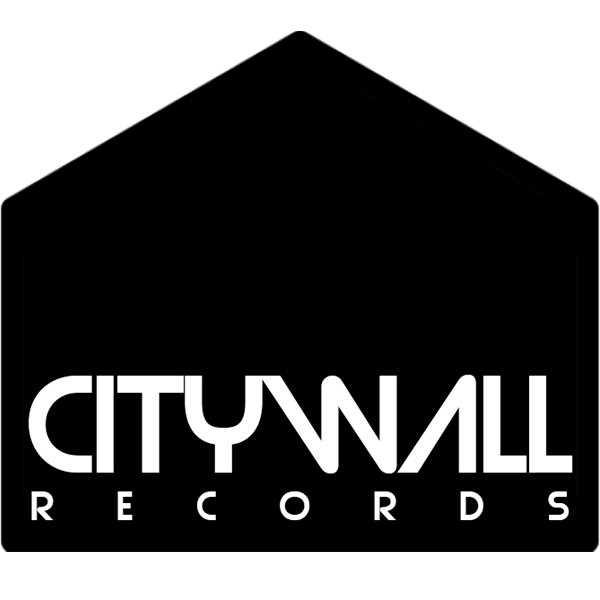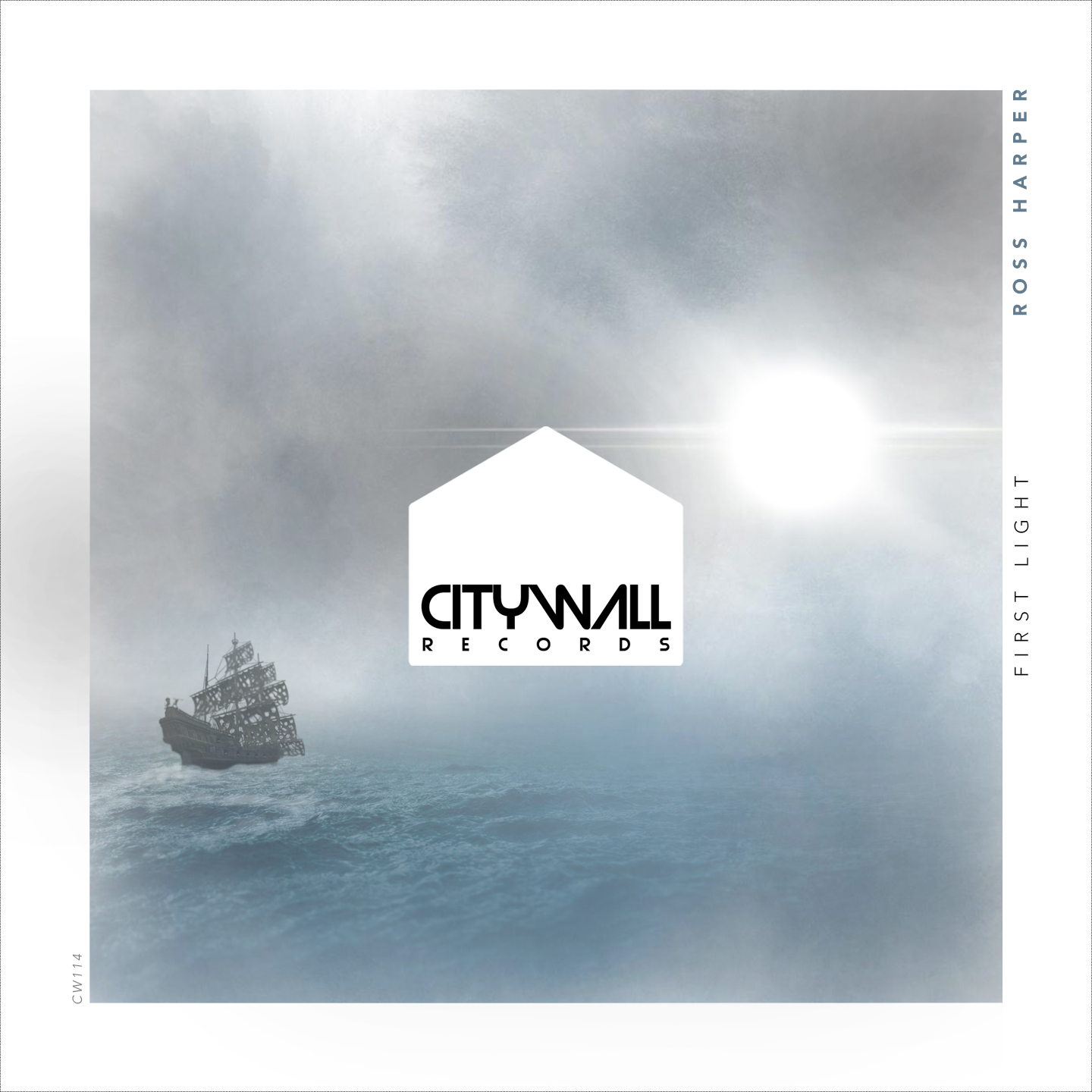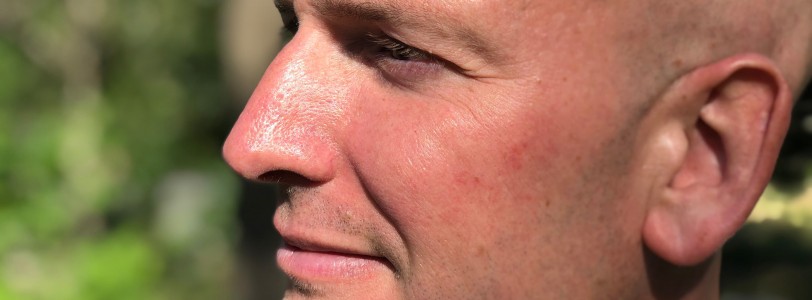Could you first introduce yourself to the reader?
Hi, my name is Ross, and I am the founder of City Wall Records. I won’t tell you my age but I was present for the 90s birth of techno in London. This is where my passion for electronic music comes from and where a lot of the energy behind the label comes from – that original raw excitement of dancing and feeling something completely new.
Could you give us an outline of your day?
Every day is different! My day job is quite demanding, I do shift work in a call centre for a bank, so I am all over the place day to day. In terms of the label, there are many demands. First there’s audio production work, which I do “in-house” (I have a first class degree in music production). By “mastering” the music that is signed to the label, I ensure it sounds polished enough to go out to the online stores.
Then there’s the artwork. I work alongside a designer and we use a combination of self-made templates and creative edge to ensure City Wall artwork is top notch. I also have to stay on top of promotion, which mainly involves getting the new music into the hands of DJs who will play the tracks in their sets. There’s also the admin, so uploading the releases to distributors and making sure royalties are reported to artists. It’s all a big juggling act, and different things take priority at different times.
As well as this I love DJing and going out dancing. I also love yoga and meditation. Every day starts early with a time of meditation and breathing.
How do you balance managing a record label and working a day job?
This is so important. In fact, it is the most important thing. Right now it is tricky, and I would say things are not as “cool” as they sometimes can be. The “relaunch” is a big push, but I do know it will even out soon, so part of this is about knowing there are busy times and quieter times.
The daily morning routine of meditation and breathing really help but that is not enough to properly look after my mind and body. So I go to the gym at least once a week for a combination of free weights and cardio work. As well as “time on my yoga mat” at home, I also practice yoga in a class at least once a week. I also try to eat lunch away from a computer and have an evening meal with my family. While in the call centre environment I take time out between calls to breathe and stretch. Oh, and I’ve just started working with a nutritionist. I also like to swim, spend time in a sauna and a love a good deep tissue massage (purr)!
Oh, and I find that working flat out is no good and I give my best output if I take at least one day out a week to relax.
Do you think working arrangement is common in the creative industry?
If you’re asking whether working in a day job is commonplace, then yes, it is. It is totally standard. It is not impossible to make a living from the creative industry but it takes real perseverance, I am confident I will get there, and everyone’s journey is different. My advice to anyone pursuing a career in the creative industries would be to first of all sit down and carefully weigh up all the options, then set out on your path, stick at it and see where it takes you.
 Why did you want to start a record label?
Why did you want to start a record label?
Wow, that’s another great question. I had just graduated from music college, the internet download scene had just begun, and I was faced with two options: either sign my own music to labels I wasn’t sure I could trust, or start my own label. I think a lot came down to trust. I had seen how many labels came and went in the 90s ─ even successful labels just seemed to go “pop” ─ and all that great music ended up in copyright grey areas. I was getting offers to sign my music, but I was like, this doesn’t feel right.
So, I started to explore via the internet, made a few connections, got a great offer for a digital distribution deal, and boom, I just ran with it. I mean, I had all the skills to put out A1+ music from my bedroom. And I am not the only one to have pursued this, another great model to look at is Keine Musik in Berlin. They took a similar independent stance and now they are really making an impact.
And what drew you to rave music specifically?
Before rave music I was into indie bands and deep psychedelic rock music, and before that in primary school pop had sparked my musical interest ─ I even made a little photocopied music mag in primary school which I sold to friends, ha ha!
The “indie stage” was like my early teens. I got into drugs really young, like I took LSD at about 13, I remember walking through the park seeing the trees do star jumps. I was going out to indie clubs in London from about 14 onwards. Then at about 15 I remember going to a garage club called Bar Rumba on Shaftesbury Avenue. I took some speed, I think, and remember dancing on a speaker surrounded by a crowd of 30-somethings and they were just like so cool and accepting.
So, that was it, from then on I just kept dancing. I had a Saturday night job in a restaurant as a “bus boy” and I would work, get my share of the tips, and then go and dance all night. London was different back then, with far fewer rules and everything was much more chilled out. So my roots are in pop, indie, psychedelic rock, some hip hop, then garage, drum and bass, then house and techno. That’s my journey.
How does City Wall Records go about finding new artists?
Mainly they reach out to me by sending demos and I listen. Sometimes it is more organic and it will be based on an introduction via a friend of a friend. Or if I’m out dancing and I get chatting to someone who produces, it can go from there.
And what do you offer them as a record label?
Well, I think this is where City Wall is different. I recently read an article in Resident Advisor about the demise of the Valencian La Ruta clubbing scene. It was a really good read. It was a combination of blows that destroyed it, but part of it was the attitude of people trying to “hold on” to power and not passing it on to others. City Wall is not about trying to “get, get, get”, it is more about “give, give, give”. So artists that work with me know they are in a two-way relationship where things are done in a mutually beneficial way.
What changes have you seen in the industry since you first started working, and do you view them as positive or negative?
I think the biggest and most exciting change is the rise of the female DJ. When I started out there were like a couple of female DJs and they didn’t really get much respect, and techno was totally male dominated. Now the tide is really turning and it is bringing so much life and good energy to the scene.
On a negative side, I think the UK scene has really struggled since the end of the nineties. Our clubs and spaces have become uber authoritarian resulting in a lack of freedom that is stifling to life and creativity. I don’t know the solution but I think Brexit is already having a positive impact, for example, I was at a popular venue last month and people were breaking the rules by smoking cigarettes and weed, but a year ago no one would have had the guts to do that, so I think something is shifting. I mean, go to Berlin, they are all smoking in the clubs, just like London in the 90s. So this authoritarian whip has nothing to do with the EU, but everything to do with how much people are willing to just be bossed around. Just saying.
And what is a change you would like to see?
I would like to see people having more freedom. Freedom to make mistakes and learn from them. Just dictating rules to people isn’t any good, it just drives things underground. So I want to see spaces where people can experiment again, like we had in the 90s.
I kind of think the last 20 years people in this country, especially the younger generations have been robbed of spaces where they can just be free. There’s always someone telling them what to do and as a result I think a lot of people just stay at home on the internet. I’m actually working on a concept called clubbeth.co.uk which is about just this. It’s only in its embryonic stages at the moment, but the idea is to create a space of freedom and go from there. A bit like a womb space, a space where new things can happen.
I know everyone seems worried about drugs and sex in this country, people telling other people what is right and wrong doesn’t help, we need spaces where people, young people especially can have “rights of passage” experiences to learn more about themselves. I don’t do drugs anymore, I’ve learnt I do not need them to feel the music and have a good time, but do I wish I’d never taken drugs? Certainly not, they were a massive part of my journey of self.
City Wall Records is relaunching in February. Why now, and what will the relaunch bring?
City Wall had to take a back seat for a few years while I focussed on my own music production. I felt I needed to just really dig deep and so I had to make some sacrifices, and putting out releases was one of them. So City Wall kind of slept, I put out the odd release but not like it was pre 2018. And it’s been so beneficial having the rest period. Personally my own production work is now in a very healthy place with lots of great releases on their way. I am now effectively a spearhead whereas before I was more of a rear guard.
I’ve also been doing more and more DJ work and getting wonderful feedback. I needed that space to dig deep, then get out there and if anything, prove myself to myself. And it’s also helped me to cut back dead bits from the label and streamline the processes. Now the label is set up so I can manage it on the move, from anywhere in the world. Same with my personal production, I’ve streamlined how I produce so I am ready to produce tracks even on tour. And the label is going to hit the scene hard in the first three months during which there will be a release going out weekly. After that I will reassess.
I also see a team is currently being built and I have vision for a UK tour, bringing together UK and international talent. The tour is just in the idea stage at the moment, pencilled in for 2021.
Tell us about your relaunch event?
The relaunch is essentially a “marker” to say “hello world”. City Wall tracks are supported by A-List DJs worldwide, our tracks are played in Boiler Room sets and by Radio One DJs, but up until now it has been a purely bedroom based project. With the relaunch it’s a “foot in the water” of getting things moving in the events area. Back in the day I used to promote successful parties, but I gave all that up to learn to produce. Now I have mastered the art of production, I am starting to take it to the people.
The relaunch is in a lovely intimate space in the heart of my now hometown, Brighton. Many people know Komedia for the cinema and comedy, but they also have a quality Studio Bar with a good sound system and a wooden dance floor! (Wood is much better to dance on than concrete – especially if you like jumping around like me!). Also the security is friendly, so this will be a fun event with a warm and inviting atmosphere. A place where people can come to relax and listen to some really quality electronic music.
The artists involved are all selected by me and are top of their class. Soul Alt Delete was picked up by BBC Introducing, he produces some damn good deep house and hard techno. Delasflores is from Spain but now lives in London, and she’s been helping me with the relaunch and brings some fresh energy to the label. Her DJ style is eclectic, ranging from electronica, house, breaks and techno ─ very diverse. Nelman is coming over from Hungary, and his style is hard 90’s influenced techno trance, so expect something almost alien to what a lot of people are doing. Nelman has released loads of music with me over the years and I am 100% confident his sound will see more and more recognition as the cycles of musical taste evolve. His production work is like an art form. And me, so I will be treating people to a DJ set consisting solely of my own productions. My productions are so deep and so varied, spanning from ambient, to downtempo, to deep house, to deep techno. I don’t plan my sets I will just play what’s on my heart and what feels right at the time.
What would you say to 16-year-old Ross if you could send a message back?
Oh, I love this question. It’s easy, “follow your heart”. If something feels right, do it, if something doesn’t feel right, speak out and avoid it.
And what advice would you give to young people who want to follow in your footsteps?
This is easy too. Don’t rush around. Don’t do what anyone else says you should do. Sit down and listen, wait until you know your purpose. And if you don’t find the answer you want, save up some money and go travelling. Oh, and dance, dance a lot. Sit still a lot and dance a lot. Definitely don’t do what other people tell you to do.
Where can people find you and City Wall Records online?
This interview has been edited for clarity and brevity.









0 Comments